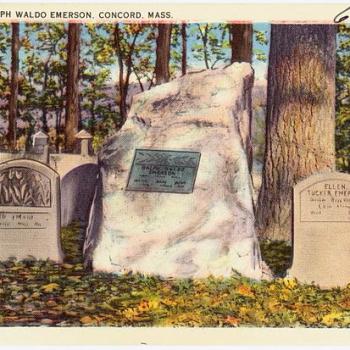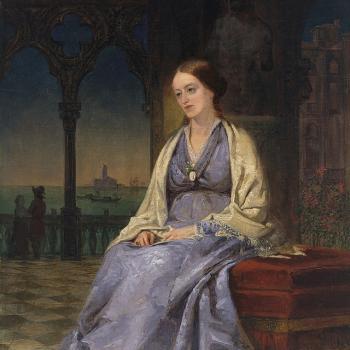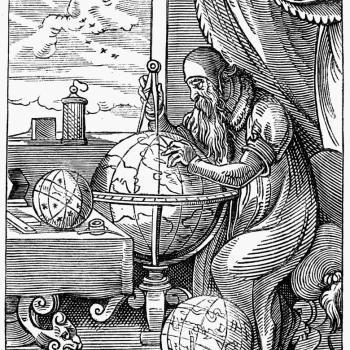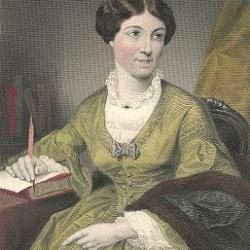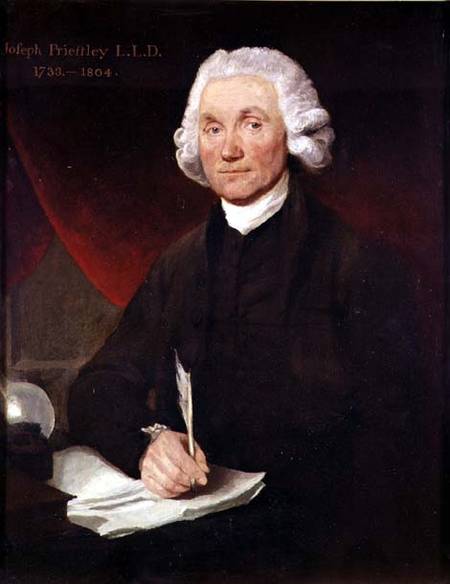
oil on canvas
Dr Williams’s Library, London
English, out of copyright
Of course today is Bastille Day. And a tip of the hat to that revolution marked by the storming of the prison in 1789.
It is also the anniversary of another uprising of sorts, a counter riot to the spirit of that revolution which also took place on the 14th of July, but two years later in England. It is commonly called the “Priestley Riots.”
Joseph Priestley is much more than the patron saint of teenagers and all who drink sodas. He was the chemist generally acknowledged as the discoverer of oxygen, and not long after of soda water. Priestley was also an educator, progressive political theorist, and clergyman.
According to the Wikipedia article on him, “Priestley’s science was integral to his theology, and he consistently tried to fuse Enlightenment rationalism with Christian theism. In his metaphysical texts, Priestley attempted to combine theism, materialism, and determinism, a project that has been called “audacious and original”.
He believed that a proper understanding of the natural world would promote human progress and eventually bring about the Christian Millennium. Priestley, who strongly believed in the free and open exchange of ideas, advocated toleration and equal rights for religious Dissenters, which also led him to help found Unitarianism in England.”
Of course, “The controversial nature of Priestley’s publications combined with his outspoken support of the French Revolution aroused public and governmental suspicion; he was eventually forced to flee… first to London, and then to the United States, after a mob burned down his home and church. He spent the last ten years of his life living in Northumberland County, Pennsylvania.”
Those riots that began on this day in 1791 swept through the English city of Birmingham, and continued for three days. The reasons were many, but they circled sufficiently around him and all he stood for, they are most often called the “Priestly riots.”
There had been long simmering hostility between the progressive Dissenters and the majority Anglican citizens of the city. The Dissenters had been pushing hard for full civil rights. But their near unanimous support for the French Revolution offended the conservative majority.
And all that they suspected came together in Joseph Priestley’s denial of the trinity and his sermons calling people to a more naturalistic humanism, humanism in the classical sense rather than our twentieth and twenty-first century understanding of the term.
The core thread running through Priestley’s preaching was his insistence that human reason rather than divine revelation was the secret of our possibility. If you want to know God, study the world. In short, Rational Religion. Liberal Religion.
It seems the spark for the riots was the insistence of some that Priestley’s books be included on the shelves of the city’s library. Apparently free access to his ideas was the bridge too far.
So, starting with Priestly’s home, laboratory and chapel (Dissenter’s could not call their religious centers “churches”), the rioters burned four Chapels, several businesses, and twenty-seven houses. Later the King, George III, is said to have said, “I cannot but feel better pleased that Priestley is the sufferer for the doctrines he and his party have instilled, and that the people see them in their true light.”
Priestly fled the country just ahead of a series of arrests and the notorious “1794 Treason Trials,” coming to the warm embrace of America. Taking refuge in Philadelphia, he gave a series of sermons which would result in the gathering of the First Unitarian Church of Philadelphia, the first church in America to claim the name “unitarian.”



